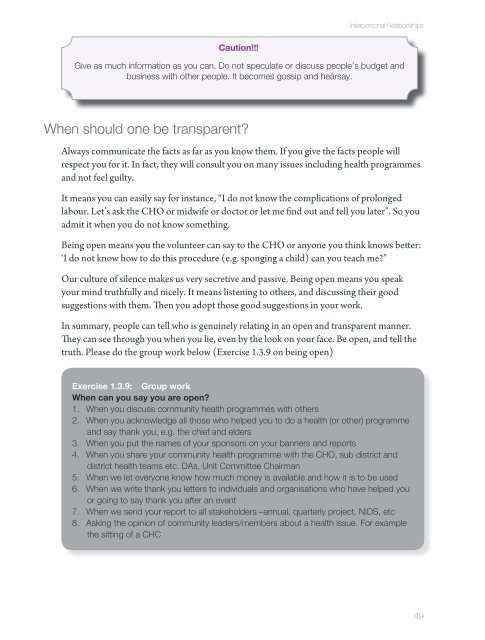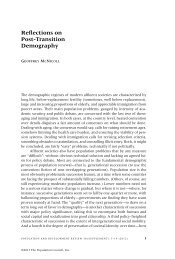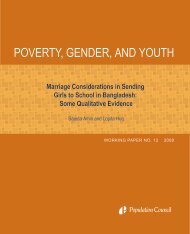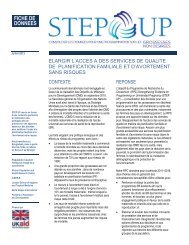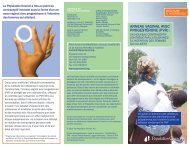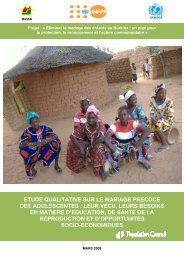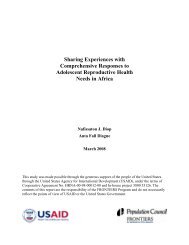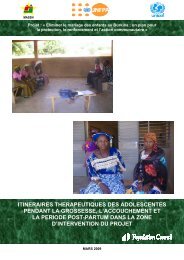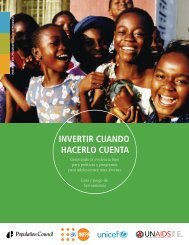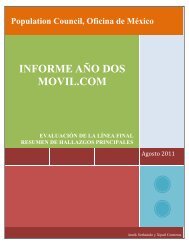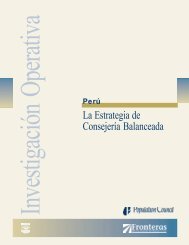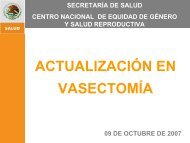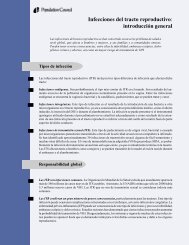Community Health Volunteer's Training Manual - Population Council
Community Health Volunteer's Training Manual - Population Council
Community Health Volunteer's Training Manual - Population Council
Create successful ePaper yourself
Turn your PDF publications into a flip-book with our unique Google optimized e-Paper software.
Caution!!!<br />
Interpersonal Relationships<br />
Give as much information as you can. Do not speculate or discuss people’s budget and<br />
business with other people. It becomes gossip and hearsay.<br />
When should one be transparent?<br />
Always communicate the facts as far as you know them. If you give the facts people will<br />
respect you for it. In fact, they will consult you on many issues including health programmes<br />
and not feel guilty.<br />
It means you can easily say for instance, “I do not know the complications of prolonged<br />
labour. Let’s ask the CHO or midwife or doctor or let me find out and tell you later”. So you<br />
admit it when you do not know something.<br />
Being open means you the volunteer can say to the CHO or anyone you think knows better:<br />
‘I do not know how to do this procedure (e.g. sponging a child) can you teach me?”<br />
Our culture of silence makes us very secretive and passive. Being open means you speak<br />
your mind truthfully and nicely. It means listening to others, and discussing their good<br />
suggestions with them. Then you adopt those good suggestions in your work.<br />
In summary, people can tell who is genuinely relating in an open and transparent manner.<br />
They can see through you when you lie, even by the look on your face. Be open, and tell the<br />
truth. Please do the group work below (Exercise 1.3.9 on being open)<br />
Exercise 1.3.9: Group work<br />
When can you say you are open?<br />
1. When you discuss community health programmes with others<br />
2. When you acknowledge all those who helped you to do a health (or other) programme<br />
and say thank you, e.g. the chief and elders<br />
3. When you put the names of your sponsors on your banners and reports<br />
4. When you share your community health programme with the CHO, sub district and<br />
district health teams etc. DAs, Unit Committee Chairman<br />
5. When we let everyone know how much money is available and how it is to be used<br />
6. When we write thank you letters to individuals and organisations who have helped you<br />
or going to say thank you after an event<br />
7. When we send your report to all stakeholders –annual, quarterly project, NIDS, etc<br />
8. Asking the opinion of community leaders/members about a health issue. For example<br />
the sitting of a CHC<br />
49


